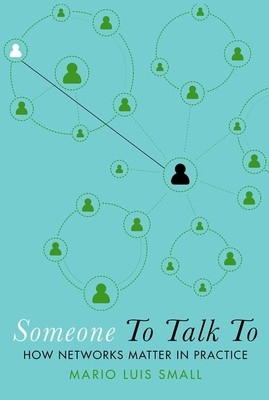
- We will send in 10–14 business days.
- Author: Mario Luis Small
- Publisher: Oxford University Press, USA
- ISBN-10: 019009043X
- ISBN-13: 9780190090432
- Format: 15.5 x 23.1 x 1.8 cm, softcover
- Language: English
- SAVE -10% with code: EXTRA
Reviews
Description
Winner of the James Coleman Award for Best Book from the Rationality and Society section of the American Sociological SocietyWinner of the Outstanding Recent Contribution from the Social Psychology section of the American Sociological Association
Winner of the Best Publication Award from the Mental Health section of the American Sociological Association
Honorable Mention, PROSE Book Award, Cultural Anthropology and Sociology, from the Association of American Publishers When people are facing difficulties, they often feel the need for a confidant. How do they decide on whom to rely? In Someone To Talk To, Mario Luis Small follows a group of graduate students as they cope with stress, overwork, self-doubt, failure, relationships, children, health care, and poverty. He unravels how they decide whom to turn to for support. And he then confirms his findings based on representative national data on adult Americans. Small shows that rather than consistently relying on their "strong ties," Americans often take pains to avoid close friends and family, as these relationships are both complex and fraught with expectations. In contrast, they often confide in "weak ties," as the need for understanding or empathy trumps their fear of misplaced trust. In fact, people may find themselves confiding in acquaintances and even strangers unexpectedly, without having reflected on the consequences. Amid a growing wave of big data and large-scale network analysis, Small
returns to the basic questions of whom we connect with, how, and why, upending decades of conventional wisdom on how we should think about and analyze social networks.
EXTRA 10 % discount with code: EXTRA
The promotion ends in 18d.01:34:13
The discount code is valid when purchasing from 10 €. Discounts do not stack.
- Author: Mario Luis Small
- Publisher: Oxford University Press, USA
- ISBN-10: 019009043X
- ISBN-13: 9780190090432
- Format: 15.5 x 23.1 x 1.8 cm, softcover
- Language: English English
Winner of the Outstanding Recent Contribution from the Social Psychology section of the American Sociological Association
Winner of the Best Publication Award from the Mental Health section of the American Sociological Association
Honorable Mention, PROSE Book Award, Cultural Anthropology and Sociology, from the Association of American Publishers When people are facing difficulties, they often feel the need for a confidant. How do they decide on whom to rely? In Someone To Talk To, Mario Luis Small follows a group of graduate students as they cope with stress, overwork, self-doubt, failure, relationships, children, health care, and poverty. He unravels how they decide whom to turn to for support. And he then confirms his findings based on representative national data on adult Americans. Small shows that rather than consistently relying on their "strong ties," Americans often take pains to avoid close friends and family, as these relationships are both complex and fraught with expectations. In contrast, they often confide in "weak ties," as the need for understanding or empathy trumps their fear of misplaced trust. In fact, people may find themselves confiding in acquaintances and even strangers unexpectedly, without having reflected on the consequences. Amid a growing wave of big data and large-scale network analysis, Small
returns to the basic questions of whom we connect with, how, and why, upending decades of conventional wisdom on how we should think about and analyze social networks.


Reviews